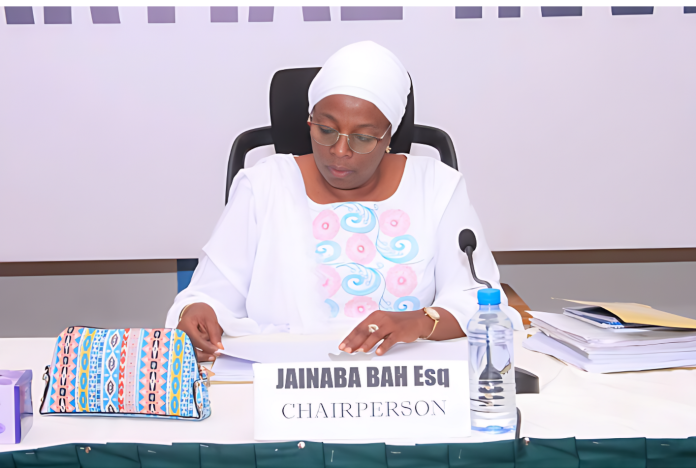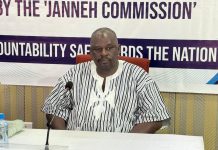By Yankuba Jallow
The Local Government Commission of Inquiry has uncovered fresh details surrounding the suppression of D324,000 in council revenue, drawing both the former Chief Executive Officer (CEO) of the Banjul City Council (BCC), Mustapha Batchilly, and revenue collector Mustapha A.B. Sarr deeper into a widening accountability probe.
Appearing jointly before the Commission, both men were questioned over financial irregularities and administrative lapses within the council’s trade license and revenue collection processes.
Sarr admitted that D324,000 in revenue was collected but not deposited into council accounts, a clear case of suppression of public funds. While this admission was significant, the Commission’s attention also turned to the actions — and inactions — of his former supervisor, Mustapha Batchilly.
Batchilly, who served as BCC’s CEO during the period under review, acknowledged that he was aware of Sarr’s suppression of funds but admitted failing to follow up or initiate disciplinary action. “He should not have been paid,” Batchilly said, referring to another issue involving Sarr’s salary during a politically motivated leave of absence.
According to testimony, Sarr was granted a one-year leave by Batchilly to contest in national elections — a constitutional requirement under Independent Electoral Commission (IEC) rules. However, Sarr continued receiving his full salary throughout the leave period.
Batchilly admitted that continuing to pay Sarr during that leave was inappropriate and conceded he could not recall the specific justification for allowing it. “It was wrong,” he told the Commission.
The Commission also examined Sarr’s position within the finance unit. Sarr said he was transferred by the Director of Finance, under whose purview the licensing unit falls. However, he did not move to the new post, claiming that the Mayor’s adviser, Makumba Sanneh, intervened after he raised concerns.
“I spoke to Makumba Sanneh and he told me he was going to do something about it,” Sarr said, explaining why he remained in his role despite official directives.
In a separate line of questioning, Batchilly distanced himself from the operations of the trade license unit, stating that Acting License Manager Pa Modou Ndow did not consult him when issuing invoices. Instead, he said, Ndow worked directly with the Director of Finance.
Background of the Case
Sarr’s latest testimony builds on earlier admissions he made during a March 18 appearance before the Commission. Then, the Banjul resident and BCC employee since 2019 admitted to using council funds for personal use, stating plainly, “I used the money.”
Assigned to collect trade license fees from businesses along Buckle, Leman, Wallington, and Hagen streets, Sarr submitted only two of his required cash books — those for 2021 and 2022 — claiming the rest were likely still at the BCC office. His 2021 records began in March, with February missing, despite testimony from other collectors that February marks the start of trade license collection.
Under questioning from Counsel Sunkary Camara, Sarr confirmed that he diverted D324,000 in council revenue between 2021 and 2022, as flagged by the National Audit Office. He acknowledged knowing the act was wrong and that he was never authorized to use the money, which he spent on “solving my problems.”
As of now, Sarr has repaid only D25,000 of the amount — through two deposits made in October 2024 at Trust Bank. Deposit slips for those payments were admitted into evidence.
Sarr also admitted to receiving his full salary during a year-long leave of absence in 2023 to contest the Box Bar Ward council seat under the United Democratic Party (UDP). He lost the race to NPP candidate Abdou Aziz Gaye but has not returned to work since.
- The Local Government Commission of Inquiry is continuing its investigation into the financial and administrative conduct of local councils from 2018 to 2023, with Sarr and Batchilly among the officials under scrutiny for their roles in revenue mismanagement and institutional negligence.



















